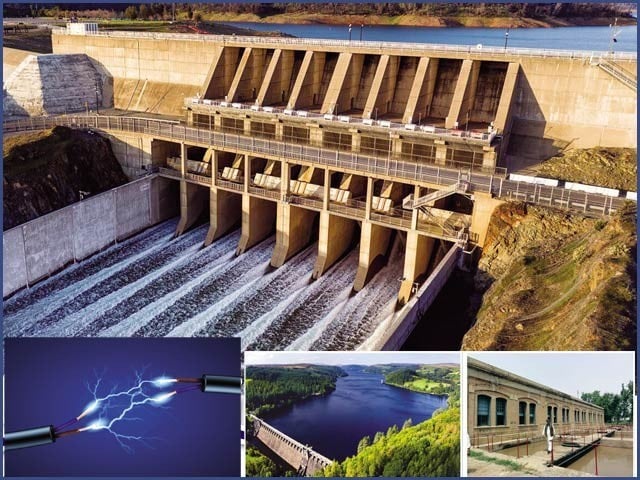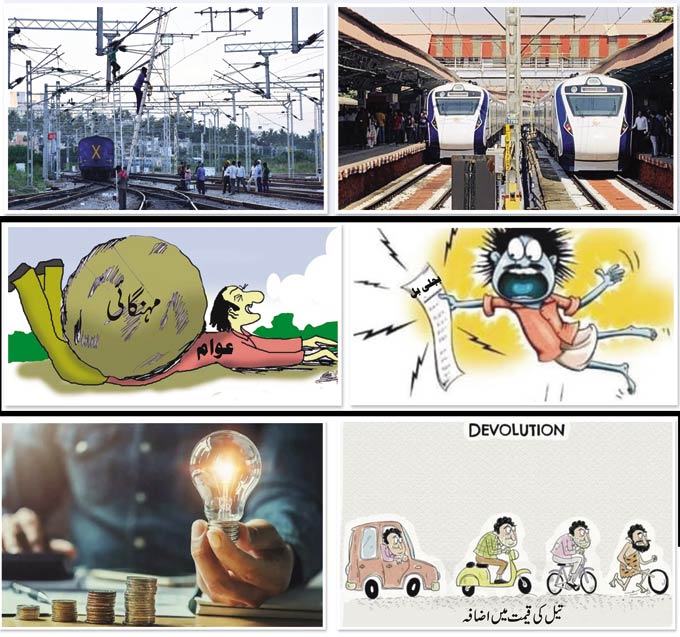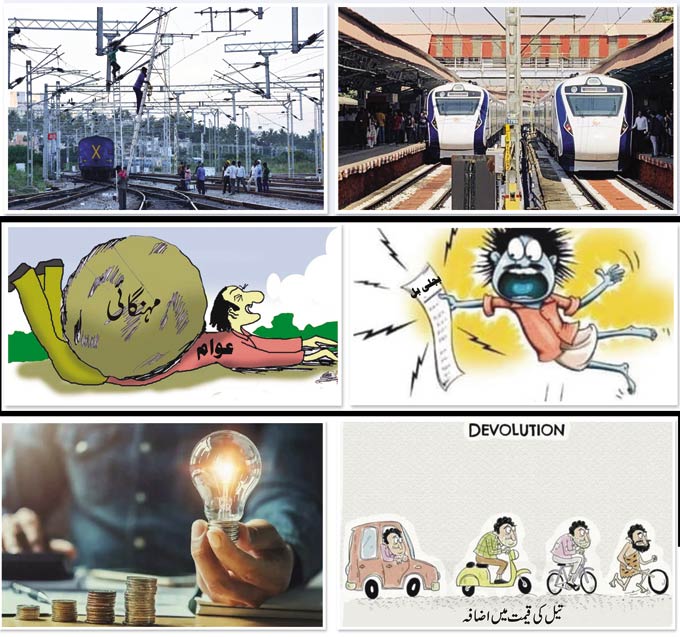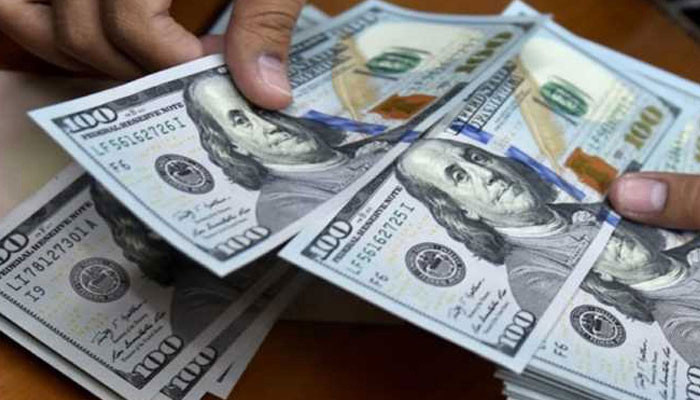
Instead of imported expensive fuel, make electricity from dams and light up your home and office. Photo: File
Thomas Jefferson is one of the founders of the United States. He has a famous saying about good governance: “If the ruling class performs its duties with integrity and duty, the country will automatically progress.” And its people get prosperity and satisfaction.” This is a true saying.
Human history is a witness that in the countries where the ruling class became greedy and started fulfilling personal interests, there could never be development and prosperity, but the people were humiliated due to their corruption.
The ruling class never kept the welfare of the people in mind and fulfilled their temporary benefits. It is a pity that even in the case of Pakistan, the ruling class could not fulfill the wishes and aspirations of the people. Take the current situation of inflation. .
Factors of inflation
Inflation has arisen mainly due to two factors in Pakistan… food prices increase and fuel prices (petrol, diesel, electricity, gas etc.) also increase. Food prices are increasing because the population of Pakistan has increased. The production of other grains, vegetables, fruits etc. is not increasing but it has decreased. The reason is that many farmers have sold their lands and housing societies have been formed there. Also, many farmers left agriculture and took up some other profession due to difficult conditions.
Due to the same reasons, due to the reduction in agricultural production, a large number of different types of food such as pulses, wheat, spices and even vegetables (eg ginger) are being imported from foreign countries. As the rupee depreciated against the dollar, imported goods became more expensive than in five years.
The dollar which was worth 60 rupees in September 2006, became 102 rupees in September 2016 after ten years. It touched Rs 123 in September 2018 and is now hovering around Rs 300 just five years later.
One of the reasons for the fall in the value of the Pakistani rupee is that the country has a heavy debt burden. According to the State Bank, the total debt to Pakistan has reached 77 thousand rupees. The situation is that the government has to pay monthly and annually If there is income, more than half of it is spent on repaying loans and paying their interest.
Most of the remaining money is spent on defence, pensions and running the government. Thus, the government money spent on public welfare works is decreasing every year.
Due to the shortage of money, the government ended the subsidies on food and fuel. As if the ruling class did not reduce its expenses, it ended the financial assistance given to the poor. Can it be called a people-friendly and justice-based initiative?
Fuel sector situation
In the modern era, the development and prosperity of a country has been built on electricity because all the business life from home to office and factory runs on it. If there is no electricity, work stops everywhere.
After electricity comes the number of oil and gas. But oil and gas and coal etc. are environmentally friendly sources of fuel. Then their reserves will eventually run out. That is why the trend of generating electricity from renewable sources such as water, sun and wind is increasing worldwide.
Developed countries want to get rid of oil, gas and coal in the next ten to fifteen years because the gases produced by these fuels are causing severe heat waves there. The custom of electric cars and vehicles has been born there.
Nature has blessed Pakistan with innumerable small and big rivers. By building dams in these rivers, it is possible not only to store water for irrigation, but also to generate electricity from water. The first such water dam in the area that is part of Pakistan was built at Renala Khurd in 1925, which is still generating electricity.
After the establishment of Pakistan, the first hydroelectric power plant was built on Rasool Barrage in 1952, which generates 22 MW of electricity. Electricity is very cheap in a hydroelectric power plant, that’s why the ruling class of Pakistan at that time, showing foresight and duty, built two big dams… Mangla (completed in 1965) and Tarbela (completed in 1976) which generate 1070 and 4888 MW of electricity respectively. Also, they can store 7,390,000 acre feet and 11,620,000 acre feet of water respectively.
The ruling class is indifferent
After the construction of these big dams, however, the Pakistani ruling class became careless and indifferent to the future of the country and the fuel needs of the nation. The population of the country continued to grow and naturally the demand for electricity also increased.
The attention of the ruling class became more focused on saving their seats, getting high positions, somehow extracting money from the public treasury, making domestic and foreign trips and increasing their wealth and property. In the future, the kingdom will lack electricity. No one thought of the problems that would arise.
In early 1984, when the power shortage was faced, the ruling class came up with a simple solution to the problem by starting load shedding. Thus, due to the incompetence and neglect of duties of the ruling class, a strange punishment came down on the Pakistani nation.
The limit is that even at that time the ruling class did not think of starting the construction of new dams to meet the shortage of electricity. In 1979, the plan to build the Kalabagh Dam came up, but this project became a target of politics. .
Earlier, the plan to build the Katzara Dam in Skardu had come up, but the ruling class did not pay attention to it either. By building this dam, 15,000 megawatts of cheap electricity could be generated. Due to lack of attention, the country was constantly facing power shortages. In 1992, the ruling class came up with a solution by handing over the responsibility of generating electricity to private companies (known as IPPs).

This is how expensive electricity started, which has now become extremely expensive and has become the enemy of the lives and property of Pakistanis. Electricity is expensive because “61 percent” of Pakistan’s electricity is generated from oil, gas and coal, which are bought from foreign countries in dollars. As the dollar has become more expensive, electricity has also become more expensive. Power theft, line losses, capacity charges, revolving credit and corruption make it more expensive. That is why electricity has become a deadly punishment in Pakistan.
The wonder of capacity charges
The most serious problem in Pakistan’s electricity sector is the capacity charges, which will exceed two thousand billion rupees in the next financial year. And in the case of electricity bills, this amount will be forcibly collected from the consumers.
The simple definition of capacity charges is that the amount of electricity produced in private power plants, according to the contract, the Pakistani government is obliged to buy it, regardless of whether the electricity is used or not. What serious joke did the Pakistani ruling class play with the country and the nation? He called
(function(d, s, id){
var js, fjs = d.getElementsByTagName(s)[0];
if (d.getElementById(id)) {return;}
js = d.createElement(s); js.id = id;
js.src = “//connect.facebook.net/en_US/sdk.js#xfbml=1&version=v2.3&appId=770767426360150”;
fjs.parentNode.insertBefore(js, fjs);
}(document, ‘script’, ‘facebook-jssdk’));
(function(d, s, id) {
var js, fjs = d.getElementsByTagName(s)[0];
if (d.getElementById(id)) return;
js = d.createElement(s); js.id = id;
js.src = “//connect.facebook.net/en_GB/sdk.js#xfbml=1&version=v2.7”;
fjs.parentNode.insertBefore(js, fjs);
}(document, ‘script’, ‘facebook-jssdk’));



